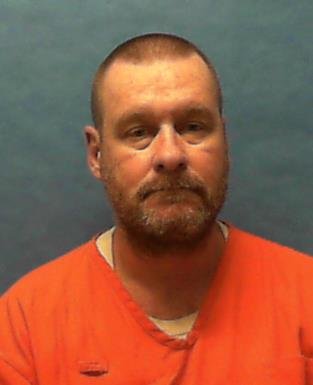
PROSPECT HEIGHTS — In a final statement before his execution Tuesday night, Florida death row inmate Michael Zack III said he made no excuses for the crimes he committed, but said he wished he could have had “a second chance, to live out my days in prison and continue to do all I can to make a difference in this world.”
Zack’s request for a stay of his execution in favor of a life in prison is precisely what the state’s Catholic bishops asked Gov. Ron DeSantis to consider last month, to no avail. Zack was executed by lethal injection on Oct. 3 at Florida State Prison, and pronounced dead at 6:14 p.m.
His final words were, “I love you all.”
Zack, 54, killed two Florida women, Laura Rosillo and Ravonne Smith, in 1996. Smith was a bar employee he befriended, whom he later beat and stabbed to death with an oyster knife. Days later, he met Rosillo at a bar in a nearby county, invited her to the beach to do drugs, and eventually beat her to death as well. He was sentenced to death for Smith’s murder and to life in prison for Rosillo’s.
In a Sept. 11 letter to DeSantis on behalf of Florida’s eight bishops, Michael Sheedy, the executive director of the Florida Conference of Catholic Bishops, acknowledged that Zack’s “heinous and horrific crimes against these women have caused untold suffering to their families, friends, and communities,” but argued that intentionally ending his life was “unnecessary.”
As an alternative punishment, Sheedy called for Zack to spend the rest of his life in prison without the possibility of parole.
“In taking the life of Mr. Zack, the state will do nothing to restore the victims’ lives. Rather, state-sanctioned killing will only further fuel the growing societal disrespect for the dignity of human life,” Sheedy wrote. “The death penalty merely perpetuates the cycles of violence and vengeance that permeate our culture. Intentionally ending Mr. Zack’s life is unnecessary.
“In our modern penal system, no one should be executed,” Sheedy said.
Bishop Emeritus Felipe Estévez of St. Augustine and other anti-death penalty advocates gathered outside Florida State Prison for a vigil for Michael Zack. The vigil was led by the Catholic Mobilizing Network, an organization that advocates against the death penalty nationwide.
“We stand in solidarity with all of those throughout the state of Florida who are holding vigils, protesting, and bearing witness to the sanctity of [Michael Zack’s] life,” the organization said in a statement.
Zack, in his final statement, said that when he committed the crimes 27 years ago, he was an alcoholic and drug addict. He said he has “woken up every single day since then filled with remorse and a wish to make my time here on earth mean something more than the worst thing I ever did.”
Sheedy, in his letter to DeSantis, highlighted the turbulent upbringing Zack endured as further reason to stay the execution. In his youth, Zack endured severe physical and sexual abuse at the hands of his stepfather. In court proceedings, Zack’s defense team presented expert testimony that he suffers from organic brain damage, fetal alcohol syndrome, and post-traumatic stress disorder.
On Oct. 2, the U.S. Supreme Court denied Zack’s appeal for a stay of execution without comment.
In the letter to DeSantis, Sheedy also noted that neuroscientific research shows that traumatic experiences, such as those experienced by Zack as a youth, can have a lasting effect on a child’s developing brain, which can profoundly affect behavior. He added that the circumstances of the case make it clear that Zack “was suffering from an extreme mental or emotional disturbance at the time of his crimes and was acting under extreme duress.”
Zack’s execution was the eighth under DeSantis since 2019, and the sixth this year. There were no executions carried out in the state between 2020 and 2022. However, Florida has the second most inmates on death row in the country after California with 291, according to the Florida Department of Corrections.
DeSantis signed Zack’s death warrant on Aug. 17.
“And finally, to Governor DeSantis and the Clemency Board: I love you. I forgive you. I pray for you,” Zack said at the close of his final statement ahead of his execution.
